UFI in Shanghai: More growth, more security
Up or down? How will the fair industry develop in the first half of 2017? What measures will be taken against the threat of terrorism? The UFI Global Barometer provides answers.
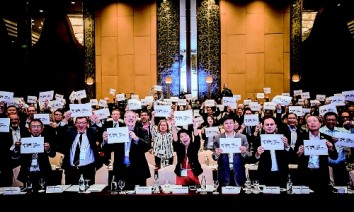
The flagship industry survey of the Global Association of the Exhibition Industry (UFI) was conducted in June and published in July: the UFI Global Exhibition Barometer. Its 17th edition includes data from 262 exhibition companies in 56 countries. Based on this data, the study revealed a number of key regional trends. The most important concerns are global economic development, the situation in the companies’ home markets, competition from within the industry and internal challenges. The analysis of global regions produced a very positive outlook for North America. More than eighty per cent of all companies expect an increase in turnover for 2016 and in the first half of 2017. And more than 50 per cent of US exhibition companies expect an increase in annual profits of at least ten per cent for 2016. The outlook for the UK was similar. However, the survey was performed in Britain before the referendum on EU membership. Good prospects also appeared in several other European markets. In Turkey expectations were low. Unlike in previous years, significantly fewer exhibition companies expect growing profits there. The situation in Russia remains unchanged.
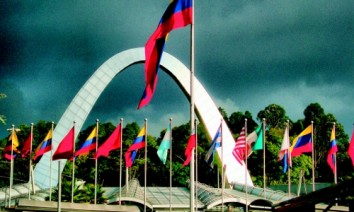
In Central and South America a majority of companies anticipate turnover decreases this year. However, they are more confident for the period from January to June 2017. Profits there are also expected to rise – with the notable exception of Brazil, which deviates from the trend. In Asia as well as the Middle East and Africa profits are looking almost just as good as in the USA. 30 to 50 per cent of survey participants expect double-digit profits for 2016. The level is a bit lower in China, where up to 30 per cent report such profits. Around a quarter of those polled in Asia/Pacific, Africa and the Middle East report uncertainty regarding their turnover for the first half of 2017. Globally speaking, the outlook appears to be, on balance, positive: The exhibition industry will post growth over the next few months, albeit with regional or national differences and challenges. In addition, cyclical factors also play a role, for which reason 2016 is a strong year in Germany, for example. This makes it rather difficult to compare the first half of 2016 with the same period in 2017.
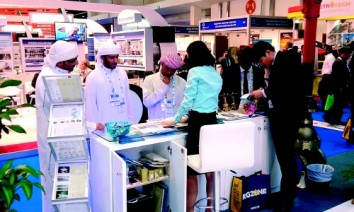
The majority of polled exhibition companies have introduced additional security measures. This is due to the growing risks caused by the surge of terrorist activities around the world. Security measures vary from additional screenings of visitors and exhibitors to controls onsite during events as well as additional information for attendees. Some companies also mentioned the occasional checking of lists of pre-registered participants. This is logically done in liaison with government institutions. The complete results of the 17th UFI Global Exhibition Barometer can be downloaded at www.ufi.org/research. The next survey will be performed in December 2016 and published next January. Then we will know what impacts major events such as the announced Brexit will have on future trade fair prospects.
Author: Peter Borstel
This article was published in TFI issue 5/2016
Share in Facebook, Twitter or Google+:
TFI - Trade Fairs International - The International Trade Fair Magazine.
© 2006 - 2024 by TFI-Verlagsgesellschaft mbH. All rights reserved. TFI-Verlagsgesellschaft mbH shall accept no responsibility for the contents of external links and other contents.
TFI-Know-how
-
What to do when things go wrong at virtual or in-person events?

In the event world, it’s simply part of life if things don’t work out as planned.
-
How can networking be made to work at online events?

Networking typically happens at real, in-person events. But it’s also possible to do it online; it just works a little differently. There are various options available to organisers.
-
How can exhibitors stand out at trade fairs?
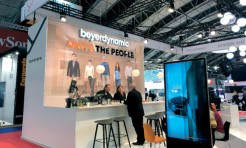
New products and a well-conceived stand design are not the only drivers for a successful presence. Many other factors are also important, but trade fair planners often lose sight of them.
-
How can industry decision-makers be reached online?
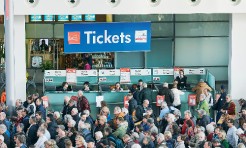
Trade fairs and trade fair companies need to constantly further develop, become more agile and flexible and offer services all year round. New, digital offerings are very important here. With its TrustedTargeting technology, Messe München offers its customers access to leading business-to-business decision-makers on the Internet.


